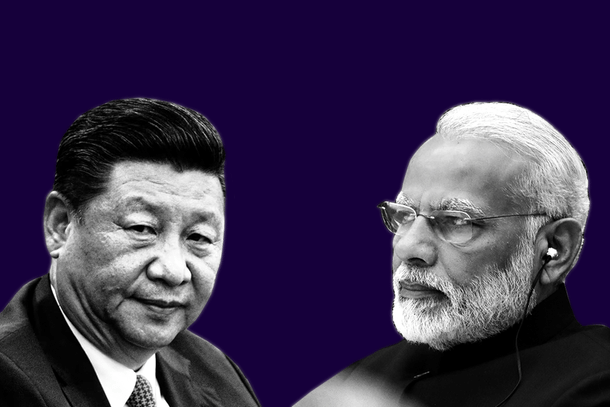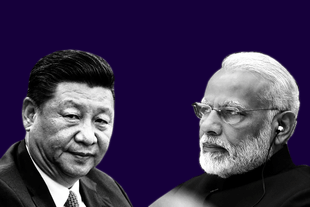Context
How India Has Been Pushing Back Economically Against China
Ujjawal Mishra
Jul 14, 2022, 08:54 PM | Updated 08:54 PM IST
Save & read from anywhere!
Bookmark stories for easy access on any device or the Swarajya app.


The Modi government is overseeing possibly the most comprehensive pushback against China's predatory economic policies.
Vivo under the lens: Earlier this month, anti-money-laundering agencies in India launched a crackdown against Vivo, accusing it of channeling money outside India, mainly to China, to escape tax liabilities.
By what it was doing, Vivo was able to cite losses and avoid paying taxes for the companies incorporated in India.
The amount in question is a staggering $7.9 billion or about Rs 624 billion, which is almost half of the company’s total sales revenue in India, around Rs 1.25 trillion, since 2014.
The agencies raided properties of Vivo in India across 48 locations.
Assets that included 119 bank accounts with a total balance of Rs 4.65 billion and gold bars worth 2 kg were seized.
Agencies found a Vivo unit in Shimla with three Chinese directors that had the address of a government building. The directors used several companies with little history to channel funds to Vivo India.
Not just Vivo: Xiaomi, Oppo, and OnePlus have been on the government’s radar for similar practices from last year.
Offices of contract manufacturers for Xiaomi in India came under scrutiny during raids last year.
Eventually, Xiaomi was ordered to cough up the $88 million it owed in import taxes between 2017 and 2020.
In April, assets worth $730 million were seized, given the company had channeled funds outside India.
Charges of corruption against the Chinese have come up worldwide.
In Africa, 60-70 per cent companies engaging with China admitted to paying a bribe to dodge the system and obtain licences for trade.
In a survey of 140-odd Japanese corporations, over 55 per cent of them admitted to the rise of business risks in China.
China's predatory investments: China has long been accused of first investing heavily in a country's business ecosystem and then leveraging its investments for its own geopolitical gains.
Beijing had employed this strategy to capture strategic infrastructure in Europe.
After the global recession, China invested more than $318 billion across Europe. The UK saw more than 220 deals of around $70 billion, and Italy and Germany had deals worth $31 billion and $20 billion, respectively.
China National Chemical Corp announced the takeover of pesticide manufacturer Syngenta AG, based in Switzerland, for $46.3 billion in 2016, which was one of the biggest deals in Europe.
As per data compiled by Bloomberg, across Europe, close to 360 companies were taken over, and partial or complete ownership was extended to four airports, six seaports, and 13 professional soccer teams.
Globally, between 2007 and 2017, China made deals worth $155 billion in energy, $102 billion in finance, $75 billion in mining, around $50 billion in internet/software and utilities each, close to $60 billion in chemicals, around $45 billion in logistics, and worth $5 billion deals in aviation.
China is heavily invested in Indian companies.
In 2020, Chinese firms had significant stakes in Zomato, Swiggy, One97 (the parent company of Paytm), BigBasket, Snapdeal, and Ola.
Chinese investments then extended to many other startups and unicorns in India, including Byju’s, Dream 11, Hike Messenger, Oyo, CarDekho, Policy Bazaar, Quikr, Rivigo, Rapido, MX Player, and Practo.
China’s investments in Indian startups rose from a mere $459 million in 2016 to around $3.9 billion in 2019.
In 2018, China’s investment had been a little over $2 billion, thus making the government approval on FDIs, especially from China, important.
India bucks the trend: The Union government has been pushing back against Chinese tactics.
The Galwan clash was the tipping point for India as it began pursuing aatmanirbharta (self-reliance).
Government approvals were made mandatory for FDIs from countries sharing a land border with India in April 2020. The policy targeted the Chinese, whereby until mid-2021, almost all the FDI proposals were put on hold.
Until March 2022, of the 347 proposals received worth over Rs 75,000 crore, 66 had been approved and 193 rejected.
Safeguarding sectors: In line with its aatmanirbharta vision, India has been noting its dependencies and seeking ways out of them across sectors.
Telecom
In May 2021, when the government green-lit 5G trials, Huawei was not allowed as one of the telecom service providers' equipment and technology partners.
Keeping Huawei out of India’s telecom sector was due to national security concerns and how compromised Huawei is to the CCP.
Pharmaceuticals
India imports close to 99 per cent of active pharmaceutical ingredients (APIs) for paracetamol, a routine tablet for fever, 90 per cent for metformin, a critical tablet for type-2 diabetes, and 90 per cent for other antibiotics.
China was producing 40 per cent of the APIs required globally as per some estimates (2017). This raised concerns about the possibility of the Chinese weaponising these supplies.
India then started promoting domestic production of APIs. By March 2022, manufacturing of 35 critical APIs was underway.
Other sectors
The Indian government has initiated PLIs in sectors like electronics, auto components, batteries, and solar modules, to name a few.
Bottom line: The tides are finally turning in India's favour due to the government's efforts — the days of the Chinese getting a free pass in India may be behind us.





